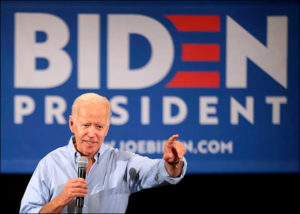By Jim Ellis
 Jan. 3, 2020 — The Census Bureau just released its new population growth estimates for the 12-month period between July 1, 2018 and July 1, 2019. Their data allows us to assess just which states will likely gain and lose congressional districts in 2020 reapportionment, both in terms of the real numbers just presented and for projecting the final count once the decade’s final-year patterns are calculated and the census is actually conducted.
Jan. 3, 2020 — The Census Bureau just released its new population growth estimates for the 12-month period between July 1, 2018 and July 1, 2019. Their data allows us to assess just which states will likely gain and lose congressional districts in 2020 reapportionment, both in terms of the real numbers just presented and for projecting the final count once the decade’s final-year patterns are calculated and the census is actually conducted.
The national population growth rate was analyzed to be 0.5 percent, down from the peak period of the decade, the July 1, 2014 through July 1, 2015 time segment, when the growth factor reached 0.73 percent. The population patterns of movement to the south and west continue, with the northeast actually seeing a population decrease during the aforementioned reported 12-month period that ended on July 1. The Midwest is not keeping up with the national rate of growth, either, but not losing overall population.
Ten states actually lost population during the reported period, led by West Virginia’s 0.7 percent drop. Alaska declined by 0.5 percent, with New York and Illinois each losing 0.4 percent. Hawaii dropped by 0.3 percent, Connecticut, Louisiana and Mississippi 0.2 percent, and Vermont (0.1 percent). New Jersey is the tenth population reduction state, but it lost only 3,835 people from a population of more than 8.9 million individuals for a 0.0004 percent decrease.
The fastest growing states at this point in the decade are Idaho (2.1 percent since July 1, 2010), Nevada, Arizona, and Utah (all at 1.7 percent increase during the same period), Texas and South Carolina (1.3 percent), Washington and Colorado (1.2 percent), Florida (1.1 percent), and North Carolina (1.0 percent).

 Dec. 20, 2019 — As the most recent polling from national research sources and in key states shows President Trump gaining political strength, the US House last night, on a virtual party line vote, approved the resolution to send the Articles of Impeachment to the US Senate for trial.
Dec. 20, 2019 — As the most recent polling from national research sources and in key states shows President Trump gaining political strength, the US House last night, on a virtual party line vote, approved the resolution to send the Articles of Impeachment to the US Senate for trial. 

 Oct. 9, 2019 — The Civiqs polling firm, as covered in the Daily Kos Elections site, has been testing all 50 states regarding impeachment in a national tracking survey that attracted 150,070 online respondents from May 16 through Oct. 6. The latest numbers suggest that 51 percent of those respondents favor impeaching President Trump, while 45 percent oppose. But, it is in the breakdown of the states’ numbers where the true political story is being told.
Oct. 9, 2019 — The Civiqs polling firm, as covered in the Daily Kos Elections site, has been testing all 50 states regarding impeachment in a national tracking survey that attracted 150,070 online respondents from May 16 through Oct. 6. The latest numbers suggest that 51 percent of those respondents favor impeaching President Trump, while 45 percent oppose. But, it is in the breakdown of the states’ numbers where the true political story is being told. Oct. 8, 2019 — At this point, Democratic presidential primary patterns are beginning to reveal themselves.
Oct. 8, 2019 — At this point, Democratic presidential primary patterns are beginning to reveal themselves.